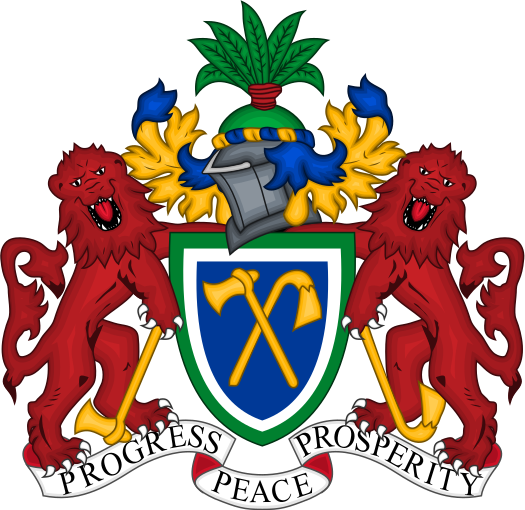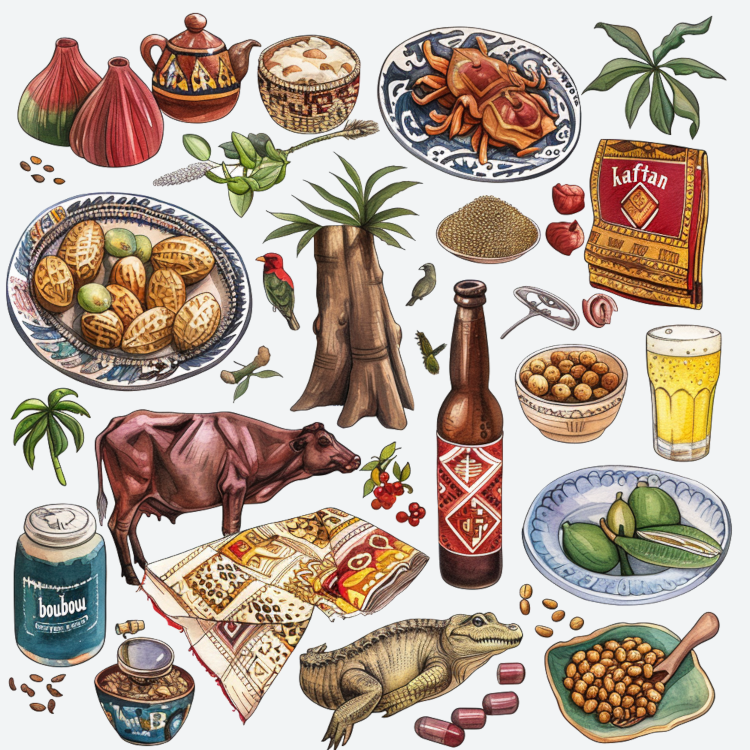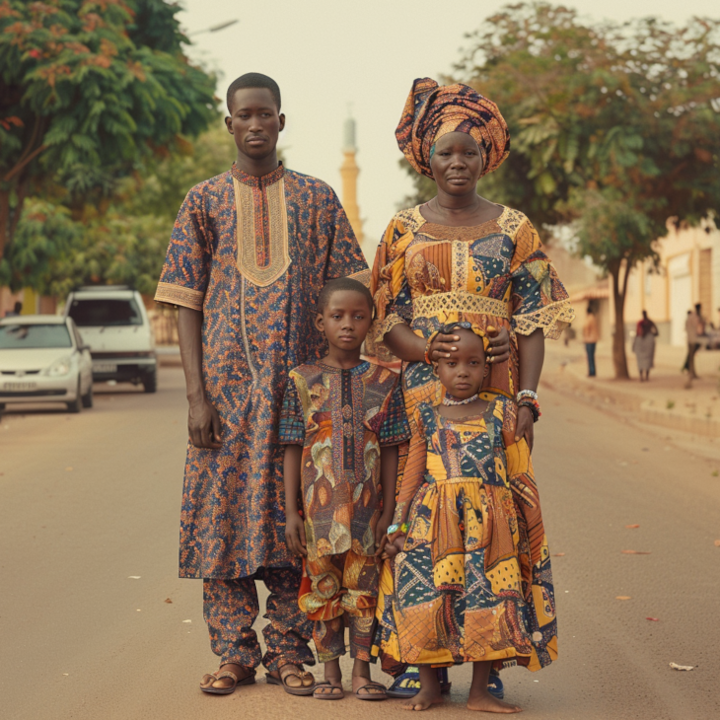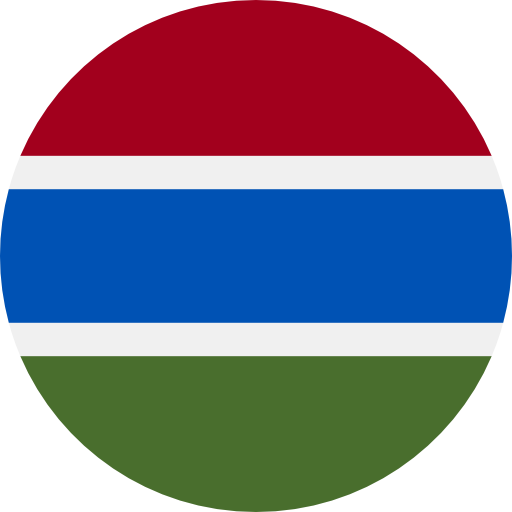About GM

Location
The Gambia is a small West African country that is almost surrounded by Senegal, except for its coastline along the Atlantic Ocean to the west.
Capital
The capital city of Gambia is Banjul, located on the Atlantic coast.
Population
As of the latest estimates, The Gambia has a population of approximately 2.5 million people.
Area
The Gambia covers a total land area of about 10,689 square kilometers (4,127 square miles), making it the smallest country on mainland Africa.
Official Language
The official language of The Gambia is English, inherited from its colonial past as a British colony.
Government
The Gambia is a republic with a democratic system of government. The President of The Gambia is both the head of state and government. The country operates under a multi-party political system.
Independence
The Gambia gained independence from the United Kingdom on February 18, 1965.
Economy
The Gambia's economy is largely based on agriculture, with major crops including peanuts, rice, and millet. Fishing is also an important economic activity due to the country's coastal location. Tourism plays a significant role in the economy, with attractions such as beaches, wildlife reserves, and cultural heritage sites.
Culture
The culture of The Gambia is diverse, with influences from various ethnic groups, including the Mandinka, Wolof, and Fula. Traditional music, dance, and storytelling are important aspects of Gambian culture. The country is known for its griots, traditional musicians, and oral historians who preserve and transmit cultural heritage through music and storytelling.
Natural Resources
The Gambia has limited natural resources, with agriculture being the mainstay of the economy. The country's river, the Gambia River, is an important natural resource, providing water for irrigation, transportation, and fishing.
Tourism
Tourism is a significant sector in The Gambia, attracting visitors with its beaches, wildlife reserves, and cultural attractions. The country is particularly popular among European tourists seeking winter sun destinations.
Challenges
The Gambia faces challenges such as poverty, unemployment, and limited access to healthcare and education. Political stability has also been a concern in the past, although the country has made progress in recent years with democratic reforms.

National Items of The Gambia
Kora
The Kora is a traditional stringed instrument used by the Mandinka people. It symbolizes the rich musical heritage, cultural expression, and artistic traditions of The Gambia.
Baobab Tree
The Baobab Tree (Adansonia) is a significant natural symbol in The Gambia. It represents resilience, longevity, and the natural beauty of the country.
Groundnut (Peanut)
Groundnuts are a major agricultural product in The Gambia, often referred to as the country's "golden crop." They symbolize the agricultural heritage and economic importance of farming.
Wrestling (Borreh)
Traditional wrestling, known as Borreh, is a popular sport in The Gambia. It symbolizes strength, cultural heritage, and community spirit.
Fula Cattle
Fula cattle, raised by the Fulani people, symbolize wealth, sustenance, and the traditional pastoral lifestyle in The Gambia.
Domoda
Domoda is a traditional Gambian dish made from groundnuts, meat, and vegetables. It symbolizes the rich culinary heritage and the blending of various cultural influences.
Julbrew
Julbrew is a popular Gambian beer. It symbolizes modern cultural practices and the local brewing industry.
River Gambia
The River Gambia is a major geographical feature in The Gambia. It symbolizes the lifeblood of the country's ecosystems, transportation routes, and natural resources.
Birds
The Gambia is known for its rich avian diversity, including species like the Abyssinian roller and the Senegal parrot. Birds symbolize the country's biodiversity and natural beauty.
Tie-Dye Fabrics
Tie-dye fabrics, often used in traditional clothing, symbolize the rich artisanal heritage and cultural identity of The Gambia.
Gambian Coffee
Gambian coffee, known for its distinct flavor, symbolizes the agricultural heritage and economic significance of coffee cultivation.
Palms
Palm trees are common in The Gambia and symbolize the natural resources and the tropical beauty of the country's landscapes.
Makossa Dance
Makossa is a traditional dance that symbolizes the rich cultural heritage, artistic expression, and social traditions of The Gambia.
Kachikally Crocodile Pool
The Kachikally Crocodile Pool in Bakau is a significant cultural and historical site. It symbolizes traditional beliefs, cultural heritage, and the natural beauty of The Gambia.
Traditional Gambian Dress
Traditional Gambian dress, including styles like the "kaftan" for men and "boubou" for women, symbolizes cultural heritage, identity, and traditional fashion.

This anthem reflects the aspirations for unity, freedom, and justice in The Gambia.
The national anthem of The Gambia is called "For The Gambia, Our Homeland" in English. Here are the lyric:
Fagaare Gambiya
Namen yalaangi
Weesung bi doolee
Ligey buka wolof
Tara jam ngati sennaare
Yaa johong wolof
Am barika jankee mboo
Wara bule jam ci teeme
Ngalama wutti foon
Adei jam ci lemu
Mbarika Gambia
Barika rataala


